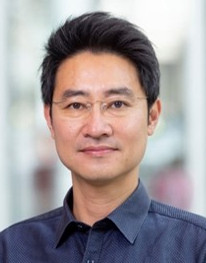
Guangwei Huang | Sophia University, Japan
Dr. Guangwei Huang is a professor at Sophia University, Japan. Born in Shanghai, graduated from Fudan University and obtained Ph.D from the University of Tokyo. Work experiences include Associate Professor at the the University of Tokyo, Kanazawa University, Professor at National Graduate Institute for Policy Study and International Center for Water Hazard and Risk Management under the auspices of UNESCO. Career at Sophia University started since 2011. His research activities over the past decades can be described as multidisciplinary and multi-scales. Lake eutrophication modeling and monitoring; sustainable use of wetland; river flow and water quality simulations, urban flood risk analysis and management, water-food nexus, and long-term policy impact analysis as well. They can be put together as sustainability studies from water perspective. His belief is that environmental problems could not be solved unless we break the walls of conventional research fields. We must take integrated approaches to deal with the very complex and interconnected environmental issues. We need new concepts, new way of thinking, new tools, new value and ultimately new sustainable society.

Mikio Ishiwatari | Meiji University, Japan
Mikio Ishiwatari is Senior Advisor on Disaster Management and Water Resources Management at Japan International Cooperation Agency, and Visiting Professor, Graduate School of Frontier Sciences, The University of Tokyo. He has been engaged in the projects and research works of disaster risk reduction (DRR), climate change adaptation, and water. He led formulation of the Japanese assistance policies of climate change adaptation and community-based disaster management. He worked at the World Bank as Senior Disaster Risk Management Specialist, and produced the “Learning from Megadisaster: Lessons from the Great East Japan Earthquake”. He worked at various positions at the Ministry of Land, Infrastructure, and Transport, Japan for 17 years. He formulated and supervised national projects of flood risk management and highways in Iwami District as Director of Hamada River and Road Office, and was responsible for research and technology development as Senior Deputy Director for River Technology and Information. He worked as Urban Development Specialist at the Asian Development Bank. He was a member of “Committee on Building Resilience to Natural Disasters” of the Japan Science Society; and experienced members of “Advisory Council of Development Assistance in Climate Change Adaptation” of Ministry of Land Infrastructure, Transport and Tourism, Japan, “Steering Committee of Water and Climate Change of Asia-Pacific Water Forum”, and other committees of government organizations. He holds a PhD in international studies and MSc in Urban Engineering from the University of Tokyo.

Kaimin Shih | The University of Hong Kong, China
Kaimin Shih is currently a Professor and Deputy Head of the Department of Civil Engineering at the University of Hong Kong. He received his Ph.D. and the postdoctoral training in the Environmental Engineering and Science program at Stanford University. After joining the University of Hong Kong, he has established and led the “Environmental Materials Research Group” since 2008. Their work is primarily to engineer and employ material properties for innovative environmental and energy applications. Professor Shih is particularly interested in studying the reaction behavior at water-mineral interfaces. He has carried out research projects related to resource recovery, environmentally-friendly materials/products, fate and transport of environmental pollutants, water/waste treatment technologies, and energy-storage materials. Professor Shih has published 300+ SCI journal articles with 15,000+ citations (h-index 76), authored 8 book chapters, and edited 2 books. He is currently a member of the Scientific Advisory Board in the International Waste Working Group and serves as executive committee members in 5 environmental associations. Professor Shih is currently the Executive Editor (Co-Editor-in-Chief) of Journal of Environmental Chemical Engineering (Impact Factor 7.1) and the Associate Editor of Waste Management (Impact Factor 7.1). Professor Shih was an Associate Dean in the Faculty of Engineering in charge of the undergraduate teaching and learning. In 2014, he received university’s Outstanding Teaching Award for his extraordinary contribution to the environmental engineering education at the University of Hong Kong.